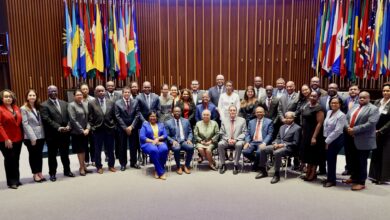A fresh appeal has been made to heads of the Organization of Eastern Caribbean States (OECS) for the implementation of a regional health scheme as the region faces a rise in Chronic Non Communicable Diseases (CNCDs).
Prime Minister Roosevelt Skerrit made the call at the 62nd OECS Authority Meeting which is currently underway in Dominica.
He said when persons are affected by CNCDs, in many cases, their personal financial reserves and the country suffer, but if this regional approach is realized, beneficiaries would be better served.
“I also want to bring back a point which I raised a couple years ago to the OECS Authority and that has to do with the regional health insurance scheme,” he said. “Our countries, and in my view one of the major challenges to our economy, is the high prevalence of CNCDs, Diabetes, Hypertension, and the illnesses associated with Diabetes is a major threat to our economies.”
The Prime Minister pointed out an example of a 40-year-old who suffers from diabetes, who has children and who had both legs amputated. He reasoned that someone in the middle class can be reduced to poverty and the state would have an additional burden to carry if such a scheme was not explored.
“So it is important for us to look at the issue of health insurance as a region,” he argued. “For a population of 600,000 people it is an ideal constituency for that kind of consideration. Because too many citizens are finding it difficult to finance health care. We have seen people with vast bank accounts have reduced to zero or even to loans to finance their health care”.
Skerrit also pointed to those who do not have insurance nor the funds to finance their health care.
“And I daresay, and I believe that, that constituency group is in the majority and therefore we have to find a way of bridging that gap with regards to our health and our health care financing. So I am hoping that we can advance the discussions with regards to a regional health insurance program,” he said.
He added, “We in Dominica looking at our own but I believe it would serve those beneficiaries much better if we have a larger pool of persons to look at.”






